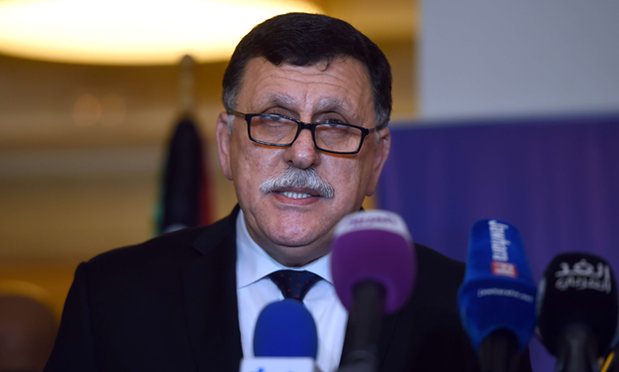Tripoli- It seems that Tripoli, with its clouded skies, will witness a conflict very soon as it may erupt on September 25 since rival armed local factions have begun to put plans to fight over the control of the capital, Tripoli.
This is a worrisome development for Chairman of the Presidential Council of Libya and Prime Minister of the Government of National Accord (GNA) Fayez Sarraj, who pointed out, during his speech at the United Nations, the risk of exceeding the political agreement that was put into force early 2016.
“Many western officials no longer answer the Council’s urgent phone calls, which indicates that there is a new political stance, which we don’t know and may not like,” a member of the Presidential Council said with s frustrated tone.
The biggest problem, according to some, is that there is no unified vision among the Europeans, at least, on resolving the Libyan problem.
The competition in Libya these days is not between pro-Sarraj forces and pro-Khalifa Haftar’s forces as it was in the past, but it is confined to the capital between some of Sarraj’s forces and armed groups that announced their allegiance and support to the Libyan businessman, who studied in the west and has US citizenship, Abdul Basit Igtet, to be the first president of Libya.
It is said that Igtet has relations with Qatar and with extremist armed groups inside Libya.
However, Igtet himself told Asharq Al-Awsat that this is not true at all.
“On the contrary, I am against the Qatari presence in Libya. This is something I am saying quite frankly. I am against the existence of any state in Libya.”
“I am against the presence of any group or movement opposing the interest of the homeland or that takes instructions from a third party, whether they are the Muslim Brotherhood or any other party.”
A western diplomat said that he believes there are two controlling parties in Libya.
The first is the US-British party and the second is the EU party, noting that the latter suffers internal conflicts, especially between France, Italy, and Germany.
While UN envoy Ghassan Salameh has proposed a roadmap aimed at amending the political agreement concluded in Skhirat and holding comprehensive elections before the end of next year, Igtet has called all Libyans to carry out protests for change on Monday at the Martyrs’ Square.
